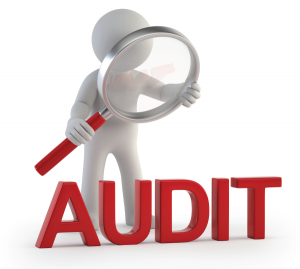
It’s that time of year when most organisations will start preparing for their annual financial audits.
Some organisations and their accounting staff may dread the annual audit, but there’s really no reason to view your organisation’s annual audit as a tedious task. In fact, an annual audit is an invaluable tool for ensuring that your financial procedures are in order. It should give you confidence in the strength of your financial systems.
Viewing auditors as a resource rather than an adversary is beneficial to the organisation as a whole. The annual audit is just a verification process of the organisation’s financial systems and statements. Auditors look at the accuracy of the numbers and processes, and let you know if internal control steps should be taken to help protect your organisation against fraud. As a result of the audit, opportunities for improvement can be identified, leading to more effective management.
Why Is It Important To Be Prepared For An Annual Audit?
Being prepared for the annual audit will not only assist the auditors, it will also ensure that you have a better understanding of your job and increase your value to your organisation. By working together, you and the auditors are more likely to discover ways to improve efficiency and minimize errors.
Although the audit may be disruptive and intrusive at times, your cooperation in supplying the necessary information will contribute greatly to the speed with which auditors can complete their work.
An audit can be much more of an investment than an expense if auditors are free to analyse and evaluate accounts and procedures, rather than prepare accounting-type schedules. This can be achieved only through preparation, coordination and cooperation among the teams involved in the audit.
What Preparations Should Be Made Ahead Of Time?
We suggest that a pre-audit planning meeting is held between the accounting staff, those charged with governance and the audit team to identify any areas requiring assistance, establish priorities, and set a time frame.
Then those identified areas and the audit procedures to be performed should be discussed with management. Contact people for the various areas under audit should be identified, together with agreement on the timing of the engagement to avoid any potential scheduling conflicts.
Establish an “auditor” file for regulatory agency correspondence and copies of new or changed documents on fixed asset additions/disposals, agreements, leases, lawsuits, complex transactions, technology modifications and major customers and vendors.
Reconcile detail to general ledger accounts. For example, reconcile all bank accounts, accounts receivable, accounts payable and equipment lists. Requests should be made for templates, copies of prior working papers and clarification so that information is prepared in a format acceptable to the auditor.
Deadlines should be prepared to discuss significant estimates used in the financial statements, such as allowance for uncollectable accounts, warranty reserves and percentage of completion.
What Information Will An Auditor Ask For?
Since auditors express an opinion on the broad financial statements, most of the detailed schedules they request are merely items your organisation should have as part of its normal accounting procedures.
The auditor systematically and objectively obtains and evaluates evidence about the basic financial statement assertions contained in your numbers:
- Existence or occurrence
- Completeness
- Rights and obligations
- Valuation and allocation
- Presentation and disclosure
How Should You Communicate With The Auditor During The Audit?
Honesty is always the best policy when communicating with the auditors. You may be asked about questionable accounting practices or pressures, fraud risk factors and known deficiencies in accounting systems.
Be open with the auditor about any difficult areas you’ve encountered, concerns, questions and recommendations you may have about your job, your business or the industry.
Alert the auditor to any outside consultants, regulatory agency enquiries or future plans, and provide related reports and correspondence.
Ask why a particular schedule is requested if you don’t know. You may have a better source for that information, it may already exist in an alternative format or you may learn a better way to organize your routine tasks as a result.
In Conclusion
A professional audit benefits several different parties. Internally, the audit provides an independent confirmation of the organisation’s financial health that confirms their good management. For stockholders, the financial audit is a critical means of establishing the worth of the organisation. For the business community, regular audits enhance the organisation’s reputation and make it a desirable business partner.

